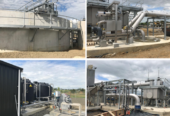Waipā is being asked what it thinks of having a Māori ward within its district council ranks for the 2022 elections. The News asked the Minister who prompted a key legislative change for her views
By Hon Nanaia Mahuta Minister of Local Government
Like many councils around Aotearoa, Waipā District Council is embarking on a very important conversation about how its Māori communities could be represented at the council table after the next elections. The benefits of engaging with mana whenua have already been realised in Nga mana whenua on Waipa.
The Government recently changed the law to remove the divisive binding polls on Māori wards. This provision did not apply to the creation of general wards and constituencies and was viewed as a huge barrier to Māori representation. Councils will have until May 21 this year to decide on whether they wish to establish Māori wards and then can participate in the representation review process in time for the next local body elections.
No doubt the local discussion will be fuelled with emotive sentiment from all sides – an in many ways we should expect that because the history in the Waipā District is confronting when it comes to Māori issues.
During the Waikato wars both Rangiaowhia and Orakau are stark reminders of how settlement in the district was established. While we all want to move forward, it’s important to understand why the advocacy for Māori representation around council decision making tables has been steadfast. Māori wards are the local government equivalent of the Māori parliamentary electorates. They ensure that electors who have chosen to be on the Māori electoral roll can also choose to vote for a Māori representative at the local level.
Councils need to include Māori in decision-making under the Local Government Act 2002 and as part of the Māori-Crown partnership under te Tiriti o Waitangi. Māori wards are one way to support this. Other Councils such as Hamilton and Waikato have introduced “Māngai Māori” who are selected to sit on decision-making committees such as audit, risk and finance. Diverse perspectives at the decision-making level makes for better outcomes that have the capacity to seek enduring solutions to difficult challenges such as heritage protection, growth and development, environmental restoration, economic opportunity, social cohesion, adaptation.
It’s important to remember that democracy doesn’t mean absolute majority rule. Minority interests need to be protected too. In this way, community views should inform councils’ decisions but not necessarily determine them.
Waipā is one of many councils taking a fresh look at Māori representation and that’s a good thing. At Waipā, one councillor position could be elected by those on the Māori electoral roll.
Data from the last Census shows that nearly 15% of the Waipā population is Māori. Yet Māori have historically been underrepresented in local government here and across Aotearoa.
All issues are local and the quality of the conversations we create amongst diverse communities are vital. We all want our communities to be a safe place for our children to grow up in, with a thriving local economy and healthy environment.
Some of the key challenges facing this district are water, climate change, emergency preparedness and community wellbeing. Māori care about these issues deeply and can play an important role in developing solutions while keeping the whole community in the front of their mind.
As tangata whenua, Māori bring perspectives to decision-making that are not held by other parts of the community. Māori representation doesn’t take away from existing views: it is an ‘and-and’. I think that Māori wards are an important tool for councils to consider when they think about the future of their district, how they make decisions, and how communities are represented.
Your views may differ. But that’s okay. I encourage everyone who lives, works or plays in Waipā to have a healthy debate on Māori representation.
This is an important conversation. Take the time to listen to each other and understand other perspectives. Then let the council know what you think. I look forward to hearing what you, together, decide.









